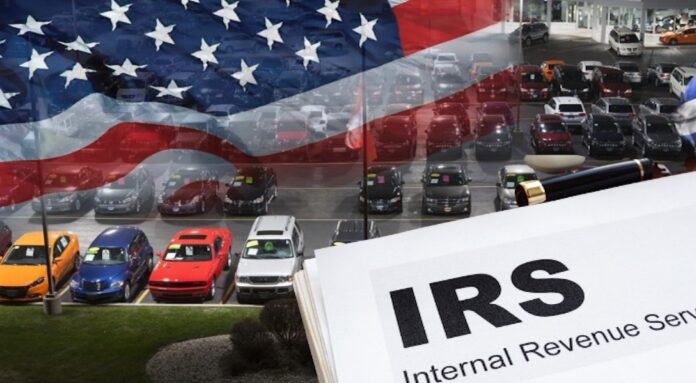Want to know how much you love your nation? Consider this: do you love paying your federal income tax, looking forward to it each year with delight and patriotic glee? If not, then you hate your country and you should feel bad about yourself. In a truly great democracy, each of us would look forward to this special time each year when we pool our money together, provide a portion of our income to the federal government for it to continue operating and keep our country beautiful, and know that we’ve each done our part for the common good. The fact that so many people dread tax time and hate paying their taxes should tell you everything you need to know about the sort of democracy we live in.
All of that aside, one of the best parts of paying taxes is all of the ways you can avoid paying them, through deductions, rebates, credits, and write-offs. Few things are as good for generating meaty tax write-offs and discounts as automobiles; understanding how to get the most value from your car at tax time is the difference between financial geniuses like me and the poors that I keep hearing so much about. Fortunately for you, I’m a benevolent sort, so I’m going to share a few of my hottest tax secrets with you.
Secret the First: Keep Track of Your Expenses
One of the keys to paying the least in taxes is keeping meticulous track of your expenses throughout the year so that you can accurately claim them come tax time. This is especially true for your vehicle and the potential it presents for write-offs and deductions. Hang onto all of your receipts related to your vehicle that you intend to use as a write-off or deduction, including all repairs and services rendered, any accessories or new parts, and the wages you pay your chauffeur. I know each of these items may seem like a pittance on their own; once expanded upon through some elegantly creative—yet avaricious—additions, however, the value can grow to a worthy sum.
Secret the Second: All Cars are Tax Write-Offs
So-called tax professionals and experts will try to tell you that you can only use a vehicle as a tax write-off or deduction if you use it for professional use. To them I say, “Hogwash!” (No, I’m not referring to my monthly hogwash—the therapeutic effects of which have been thoroughly proven for both myself and the hogs.) Any vehicle is a tax deduction if you’re brave enough, and, in all things financial, I suggest courage!
I have used every vehicle I’ve ever owned and leased as a tax write-off and will continue to do so throughout the rest of my days. My vehicle costs me money and why should I have to pay for something that costs me money? This is the same reason I take deductions and write-offs for my accountants, lawyers, and financial advisors, all of whom have assured me I should not do so. But what am I going to do? Listen to them? Hogwash!
Secret the Third: Federal Income Tax is Illegal
When federal income taxes were unleashed upon the American public in 1894, the legality of this unfair seizure of assets by the government was challenged and ultimately taken before the honorable Supreme Court of these United States. In a case titled Pollock v. Farmers’ Loan and Trust Co, the Supreme Court ruled that such a tax was unconstitutional—and I stand by that decision. Undaunted by this ruling, Congress created the 16th Amendment to the Constitution, granting the federal government the power to wage war against the wealthy through income taxation. Isn’t that convenient?
As far as I’m concerned, however, taxation is a form of unlawful seizure of property, which is prohibited by the 5th Amendment to the Constitution, found at the heart of the very Bill of Rights for this great land. I implore you, dear readers, to join me in this great struggle of ours against tyranny and fight back by refusing to give in to such a fraudulent and illegal scheme. Don’t get me wrong, I still pay my taxes, but you definitely shouldn’t, and you should fight against the system on my behalf!
Editor’s Note: Please remember that this writer is neither a financial advisor nor a tax professional, and his advice should be generally ignored. We have presented this article despite its gross factual inaccuracies and lack of understanding about how write-offs and deductions work for our own entertainment; we politely request you let us know if you plan on following any of these secrets and how they work out for you. Thank you.












